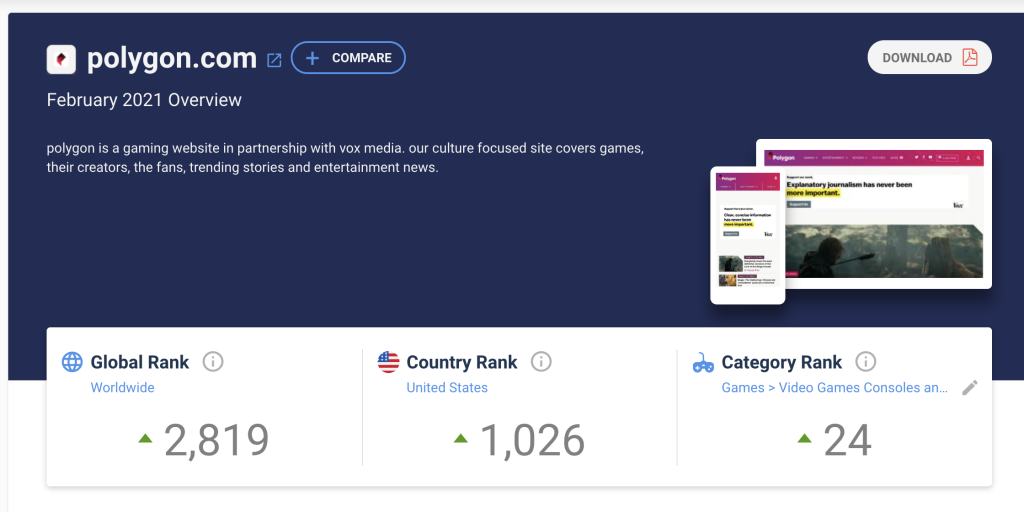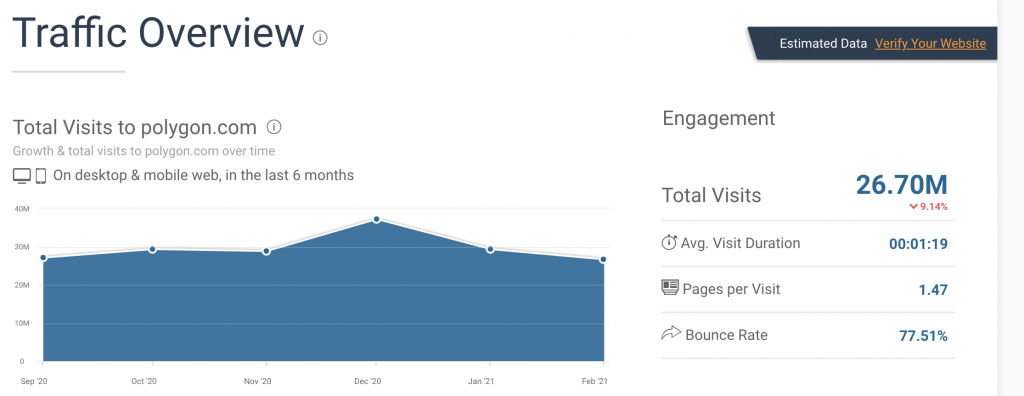Online competitor research is vital for finding out where your online business fits online. You need to know what’s already out there before you start carving out your own online niche. Online competitor research lets you survey who is already operating in the space, who is the biggest and most successful and (most importantly!) how they are doing it. Once we know how they’ve achieved success we can emulate best practices to catch up and surpass them. .

Think of competitors as collaborators
This all sounds very aggressive! And competitor research can be used purely as an aggressive tool for “beating” your competitors. Competitor research is the basis of a “know your enemy” strategy. You can’t defeat what you don’t understand.
Personally though I prefer to think of competitors as potential collaborators further down the line. The internet is a big ol’ place and there’s generally plenty of room in any particular market. And if it’s too busy then chances are you simply haven’t picked your niche very well. If you niche down enough you’ll most likely be one of a handful of outfits working in that particular niche. Working together can be a great way to expand that niche together – making the pie bigger instead of fighting over slices of said pie!
But perhaps I’m a massive kumbaya hippie! Still – if you can think of competitors as potential collaborators you can open up far more doors for yourself. This is particularly true if you are new to the niche and they are longstanding and entrenched. If you collaborate with them you can catapult up to their level much quicker than if you (as a small entrant) enter a market in an aggressive fashion.
Regardless of how you view competition though your competitor research will be key!
Competitor research – find the “biggies”
First up we need a long list of who exactly your competitors are!
Sometime this is nice and simple, especially if you’ve been in the market a while. You probably know the competitors and think that competitor research is a bit pointless.
Even if you think you know all your competitors though let’s run through the following competitor research tools and flush out potentially unknown competitors.
Related:website.com – find your online competitors.
First up a nice similar one. Head to google and put in “related:” followed immediately by the web address of a competitor. Or potentially do this with your website’s address if you are up and running.
You’ll get results like this:

Google will search for sites that are similar to whatever website address you first plugged in. This is a great first step to identifying a bunch of competitors. Google is basing this on a few factors including audience overlap. In the example above Google knows that the people who visit polygon.com also go to destructoid.com and the other sites in the list. And (funnily enough) Google knows a lot about people’s online behaviour making it exceptionally useful for online competitor research.
For now jot down some of the similar sites that Google has given you. We’ll expand this list.
Similarweb – rank your online competitors.
Next step is Similarweb. There’s a free and a paid version. Right now for your online competitor research the free version is fine.
Plug a competitor (or your site) into similarweb and you’ll see something like this:

Scroll down and you’ll find a whole smorgasbord of information that will be useful for you.
For instance there’s an estimate of traffic that we are interested in right now:

There’s also information about what channels this traffic comes from, whether it’s paid or organic traffic, what are the top social media channels etc. etc.
Basically a huge amount of information on our competitor’s position online.
Is this all accurate and 100% correct? Nope! Not at all.
For instance that 26.7million visitors over the last 6 months is an estimate. Similarweb does not have access to that actual information. But they can make estimates based on overall web searches and their general knowledge and expertise about web traffic built up over years of data collection over millions of websites.
The result is that whilst the estimates won’t be 100% accurate they are still useful rules of thumb. This is particularly the case when comparing your competitors relatively rather than absolutely. Right now when looking at our competitors we’re less interested in just how many people visit their site. We’re more interested in how our competitors stack up against each other. For instance who gets the most visitors? Who is in second place?
Even though we can’t trust the absolute numbers that similarweb gives us we can generally trust the relative figures. We can compare the estimates – if that makes sense!
Therefore go ahead and run similarweb reports on each online competitor and collect up data that will let you compare them all to one another. Who are the biggest competitors? Where does their traffic come from? Are they using paid advertising? What social channels are they using? All fo this is valuable information for building your business online.
Using online competitor research to leapfrog
We’ve just i) grabbed a list of competitors using Google and ii) checked out their relative size using similarweb.
What good is this? Just having a list of the biggest and most successful competitors isn’t very useful.
In this next step we’re going to dig a little and find out what exactly our biggest competitors are doing.
If we know what tools and tactics they are using we can emulate best practices.
If we can emulate the best practices of our biggest competitors we will grow.
So let’s make sure to steal from the best!

Online Competitor Research – HOW are they doing it?
Working out what our competitors are doing online is a big job and our exact investigation will differ depending on the product, the type of technologies involved and what methods they use to market. That said I want to show you some neat tools for scratching the surface and starting to see what’s underneath. Whilst these will not be enough to uncover all you need to know in all cases I’m hoping just they are exciting enough to get you pumped to learn about more tools.
BuiltWith
One of my favourite tools. BuiltWith.com let’s you see how your competitor’s website is built. If you are looking to emulate and build upon what they’re successfully doing already this is a great place to start.
I was going to insert an image here but even I recognise how dull that would be…so…here’s a Corgi in a flower field:

Ahem, back to the technology profiler.
Like the way they’ve done their online shop? Use BuiltWith to see what their ecommerce platform is.
Think they have really slick Chatbot functionality? BuiltWith should be able to dig up what they are using.
Rather than fumble around working out the best technologies for your online business see what the best are already using. Use this as a jumping off point and save yourself a LOT of wasted time and money.
What Theme is That?
Another tool for looking behind the curtain at how they built their site. If the competitor is using WordPress for their online business (lots of sites will so this is a good bet!) then you can throw their address into https://whatwpthemeisthat.com/ and get even more details.
What Theme is That will tell you their Theme and Plugins. If you are lucky their theme might be an off the shelf purchasable theme that you can buy and very quickly emulate their site.
Online Competitor Keyword Research
Websites are found on Google by how well they rank with respect to certain “keywords” and “keyphrases”
For instance if I type in “best at home spin bike” and Peloton pops up as the top result then we know that Pelton ranks well for the phrase “best at home spin bike”.
(This stuff is SEO btw. If you aren’t familiar with it it’s basically how to show up on Google. Gross simplification but broadly accurate!)
What if we knew the keywords and phrases that our competitors ranked for? That would be pretty cool because we could then start to also try to rank for those keywords and show up alongside or even above our competitors on Google.
This is the basis of competitor keyword research. Basically we can find out what searches in Google lead people to our competitor’s websites. Then we can try to funnel some of that sweet sweet traffic our way by producing better content (normally blog articles) around those searches.
First though we need to know our competitors’ keywords. You can use tools like SEMrush or SpyFu to gather up competitor keywords. Problem is that these tools are really expensive if you are just starting your online business.
They have free trials which allow you to get some basic information. Another option is to check Fiverr.com and find someone who can run the reports for you on their accounts. I’m pretty sure SEMrush would be mad for me suggesting this…and I could make a lot more cash by giving you a SEMrush referral link!!…but it’s still going to be more beneficial for you to have someone run a report for you from their account for a small fee.
Facebook Ad Library
This is a nice bonus if your competitor is running advertising on Facebook.
Head to https://www.facebook.com/ads/library/ and you can actually see their past adverts. This is great because it allows you to see what changes they’ve made over time. We can use this information to leapfrog to their current position and garner learnings from their past experiments and adaptations.
Online market research and best practices
You’ve gather up a list of competitors. You’ve sorted them to find the biggest and most successful amongst them. Now you’ve used a few tools to look behind the scenes and start to work out how they got to where they are today.
This all gives you extremely valuable information. Information that allows you to leap frog to their level without having to go through years of expensive experimentation. You can just look at their current best practices and emulate.
Again – this doesn’t mean just copying everything they do.
This is as a jumping off point. Don’t just rip their website and marketing collateral off.
It’s i) morally shitty and ii) ineffective because they are better at being themselves than you are!
You need to adapt their best practices to your own business, your own products/services, your own brand.
It’s in this synthesis of online market research and your own authenticity that real value can be created.
Hopefully the tools above have given you a little peek into the power of some of the tools out there. Go and experiment with these for now and make sure to check back in here in the future for more ways to start and improve your online business.